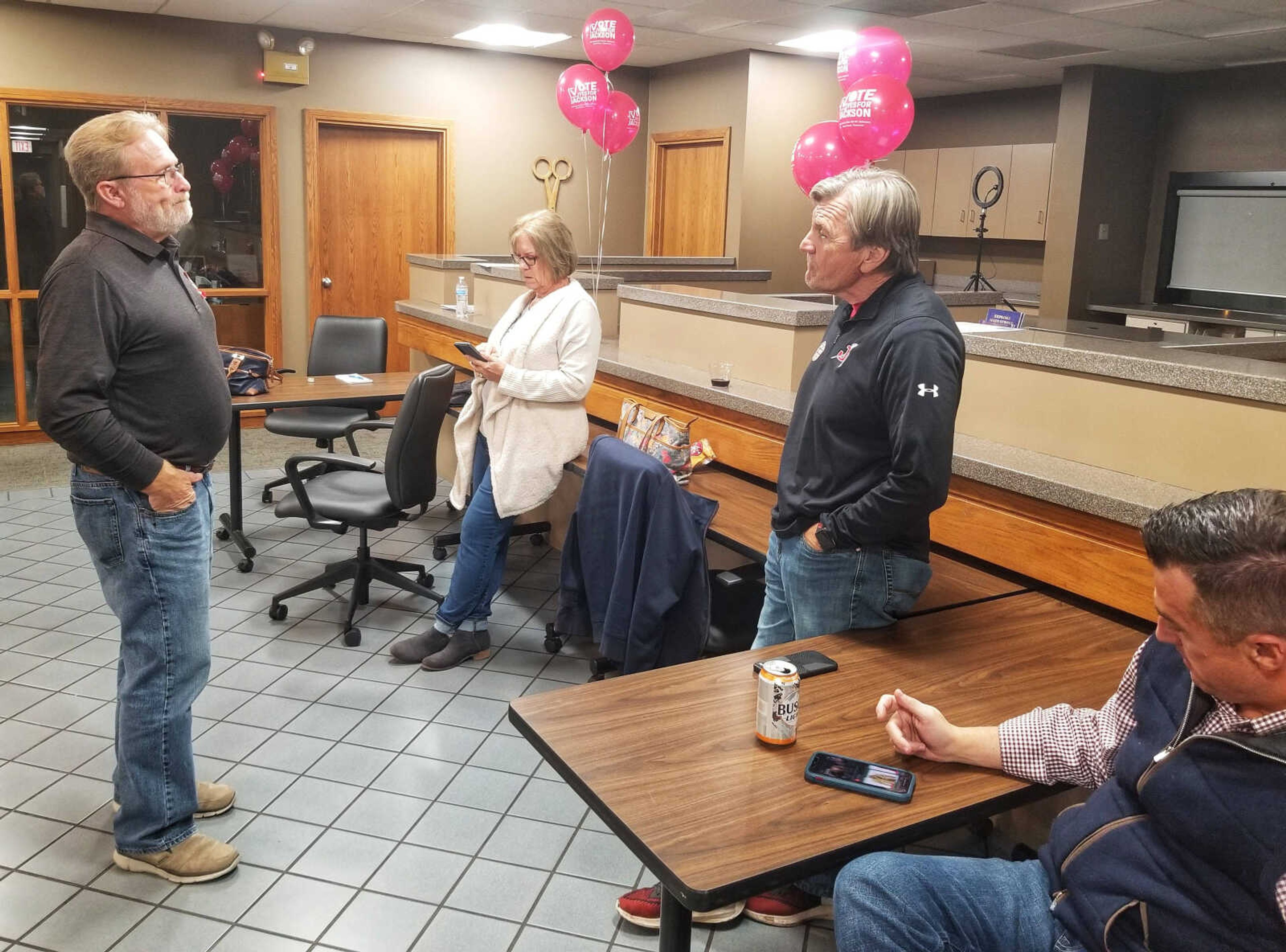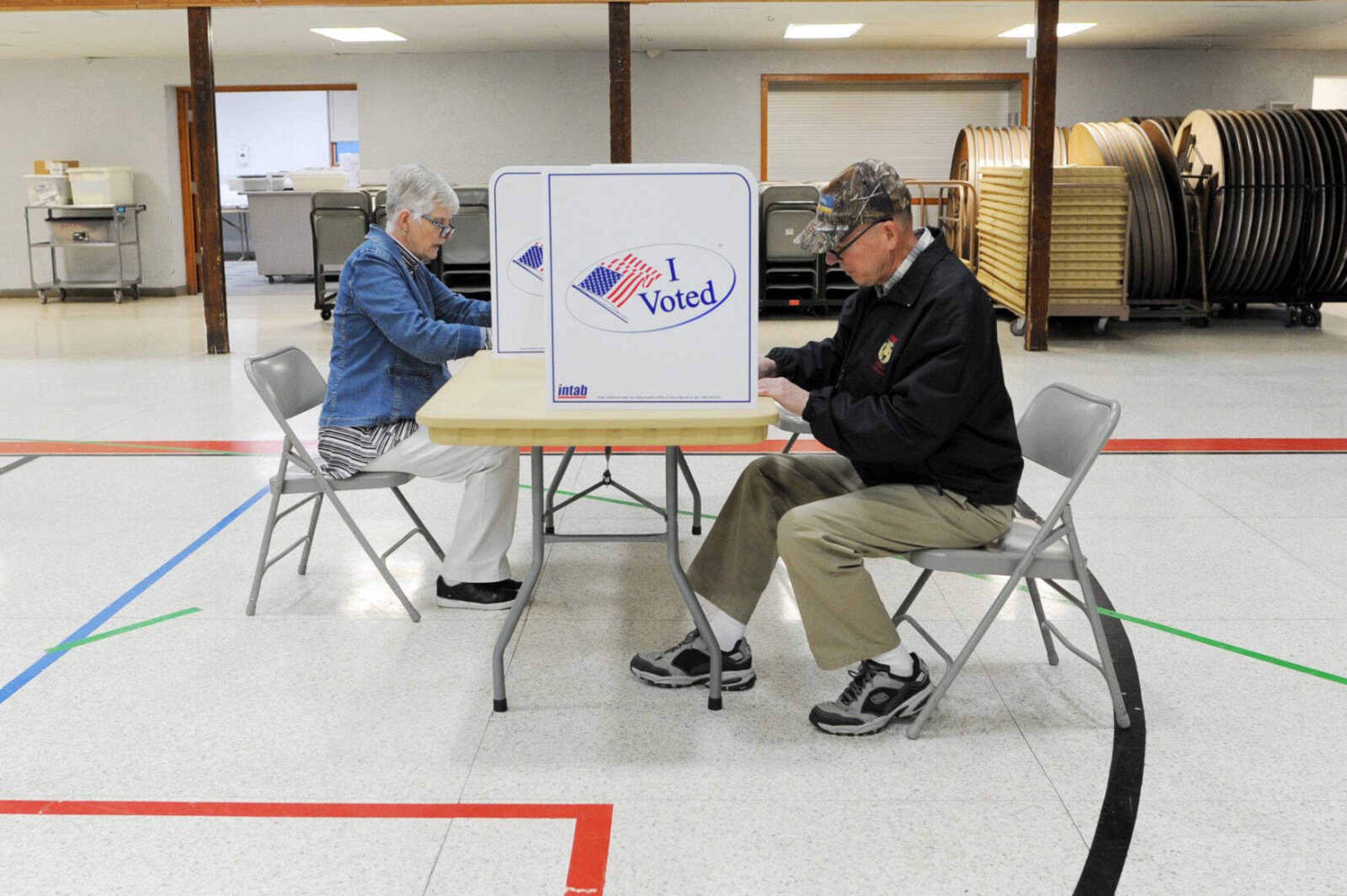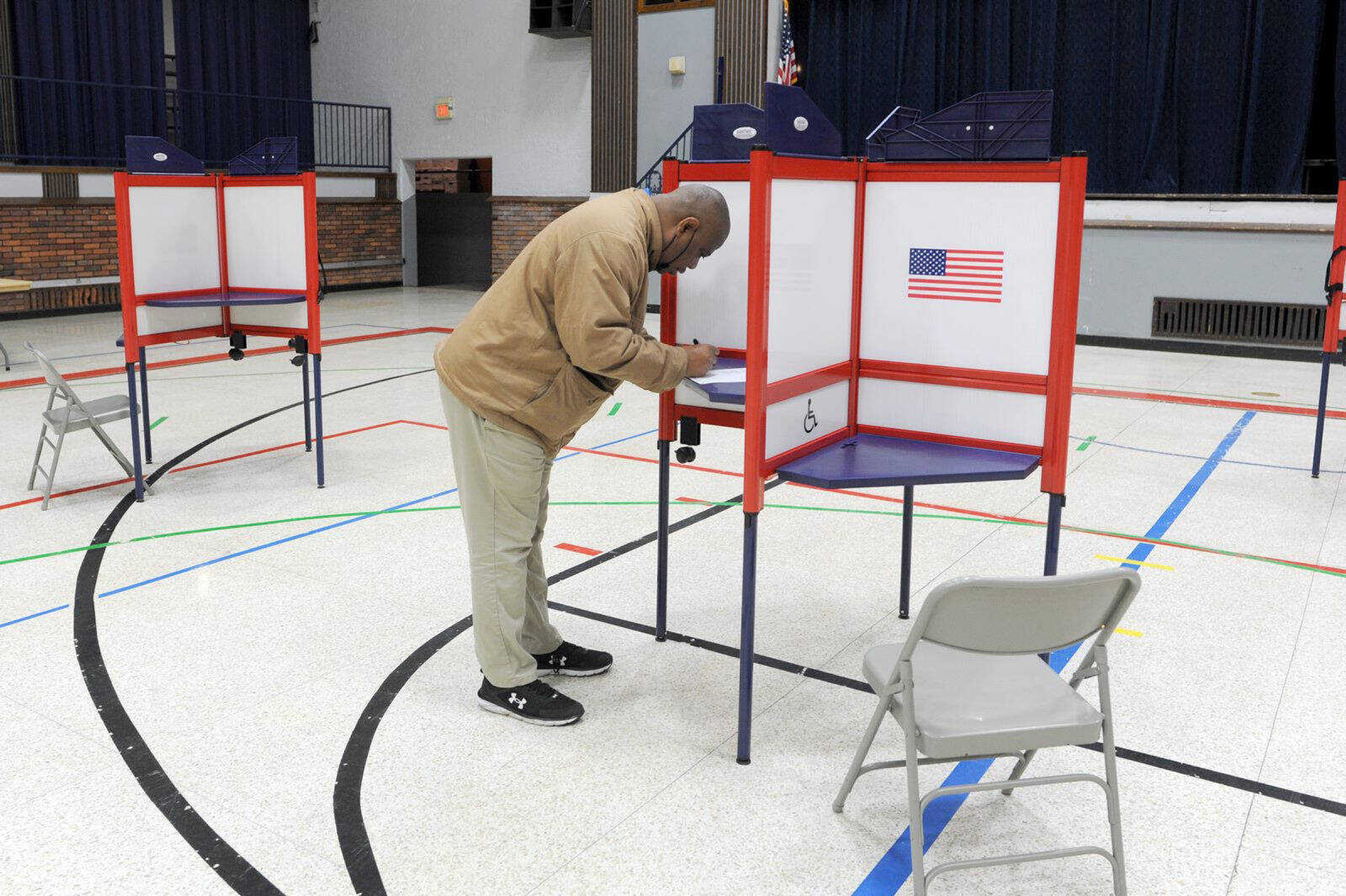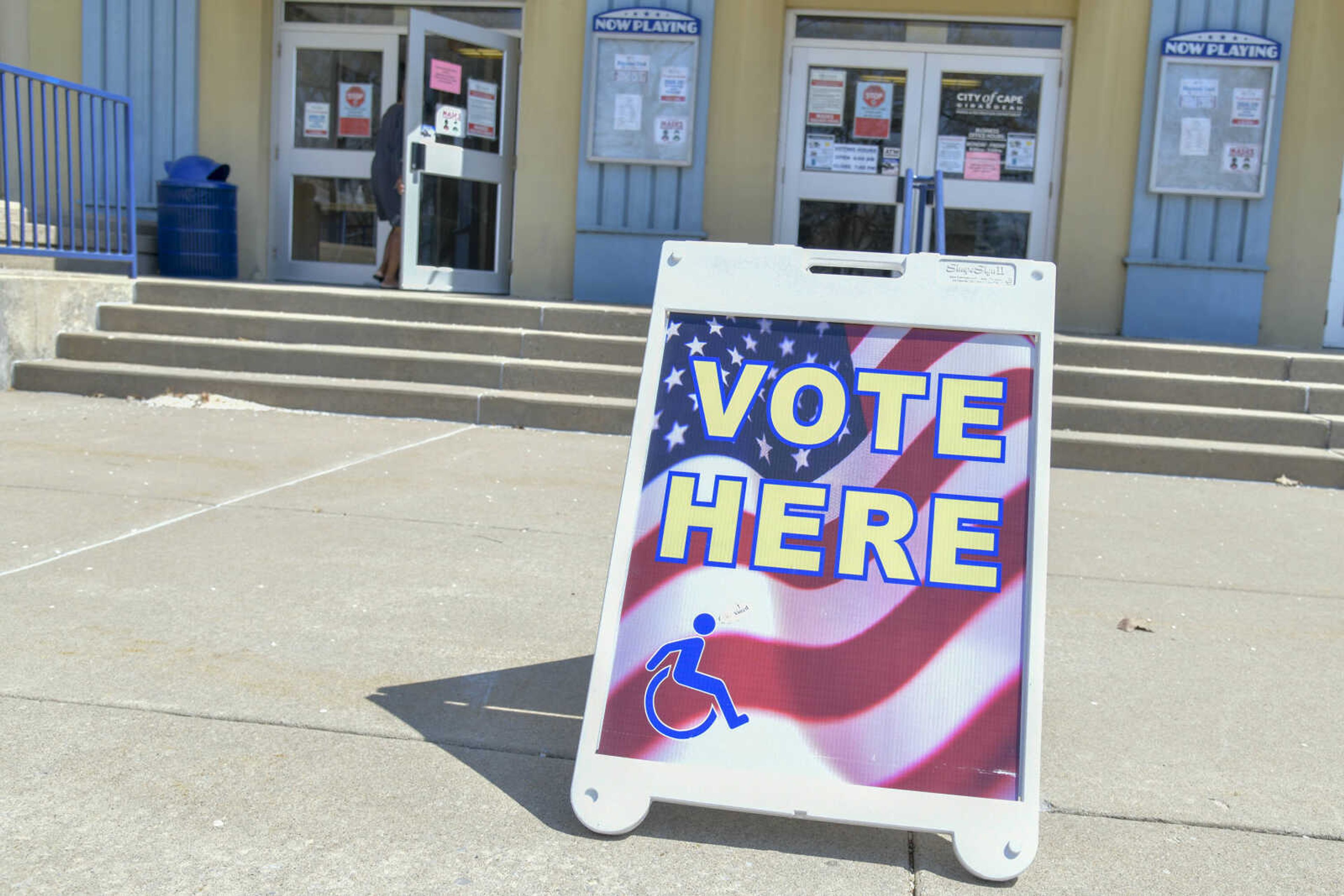Use tax passes in Cape, fails in Jackson, Scott City, Delta
With a 62% unofficial “yes” vote, Cape Girardeau voters approved a local use tax Tuesday night. The same measure did not pass in Jackson, Scott City and Delta. A use tax, often called an internet tax, imposes a tax equal to a municipality’s sales tax on goods purchased online from out of state...
With a 62% unofficial “yes” vote, Cape Girardeau voters approved a local use tax Tuesday night. The same measure did not pass in Jackson, Scott City and Delta.
A use tax, often called an internet tax, imposes a tax equal to a municipality’s sales tax on goods purchased online from out of state.
Cape Girardeau Mayor Bob Fox estimated the 2.75% tax on online goods may generate up to $3 million for the city each year, an estimate based on what Cape Girardeau County collects from its use tax. A use tax passed in Cape Girardeau County in 2015.
“I’m feeling jubilation,” Fox said after election results were announced.
“I’m just very thankful that we have a group of dedicated citizens who really care about the community and devoted a lot of time and effort to this, making videos and sending texts and doing all those things to reach people to get ‘yes’ votes,” Fox said.
Cape Girardeau officials have said use tax revenue will be used for municipal employee retention.

Tuesday marked the fourth time voters denied a use tax in Jackson since 2014. The ballot measure failed in 2019 by a margin of 82 votes. This year, it lost by 240 votes, with 57.16% of those who participated in the Jackson election voting “no.”
City of Jackson officials led a “Yes on Jackson” campaign this year to promote a use tax.
“I think we clearly laid out the uses for the tax and I’m disappointed,” Jackson Mayor Dwain Hahs said. The tax, estimated to generate $500,000 annually, would’ve gone entirely to Jackson’s parks and recreational facilities.
Jackson Area Chamber of Commerce executive director Brian Gerau, who helped lead efforts to educate voters on the benefits of the tax, said, “I think we ran a transparent, educational campaign and the voters have spoken.”
In June, Gov. Mike Parson signed Senate Bill 153 into law, allowing Missouri and local jurisdictions to collect a use tax from online retailers who sell or deliver more than $100,000 tangible goods to consumers in the state annually.
Missouri was one of the last two states to allow a use tax. A little over half of all Missouri cities have approved a use tax since Senate Bill 153 was signed into law.
When asked whether the city would try for a use tax again, Hahs said it was too soon to say.
Scott City Mayor Norman Brant said he will ask Scott City Council members to put a use tax ballot measure on the ballot again for April’s election.
According to unofficial election results, the use tax ballot measure lost by 24 votes.

“I was hoping it would pass,” Brant said. “It was a great opportunity for the city to receive funds that are going out of state.”
The city tentatively planned to allocate funds generated from a use tax to road improvements and raising employee wages. It would have raised an estimated minimum of $200,000 a year for Scott City, according to Brant.
Brant said several people approached him who were confused on the difference between the use tax and another tax on all Scott County voters’ ballots — a quarter cent tax for the purpose of providing central dispatching of emergency services.
“[We’ll] just try to educate people more so this is not to get mixed up with any other taxes that might be put on the ballot,” Brant said.
A total of 30 Delta citizens voted Tuesday, according to unofficial election results from the office of the Cape Girardeau County clerk. Nine voted “yes” and 21 voted “no” for a use tax.
Though the Missouri Department of Revenue won’t begin collecting use tax revenue until 2023, Fox said the use tax’s passing provides city employees hope.
“When employees know there is light at the end of the tunnel, your morale tends to get better,” Fox said. “We just have to stress that to them and the people that we hire.”

Connect with the Southeast Missourian Newsroom:
For corrections to this story or other insights for the editor, click here. To submit a letter to the editor, click here. To learn about the Southeast Missourian’s AI Policy, click here.









